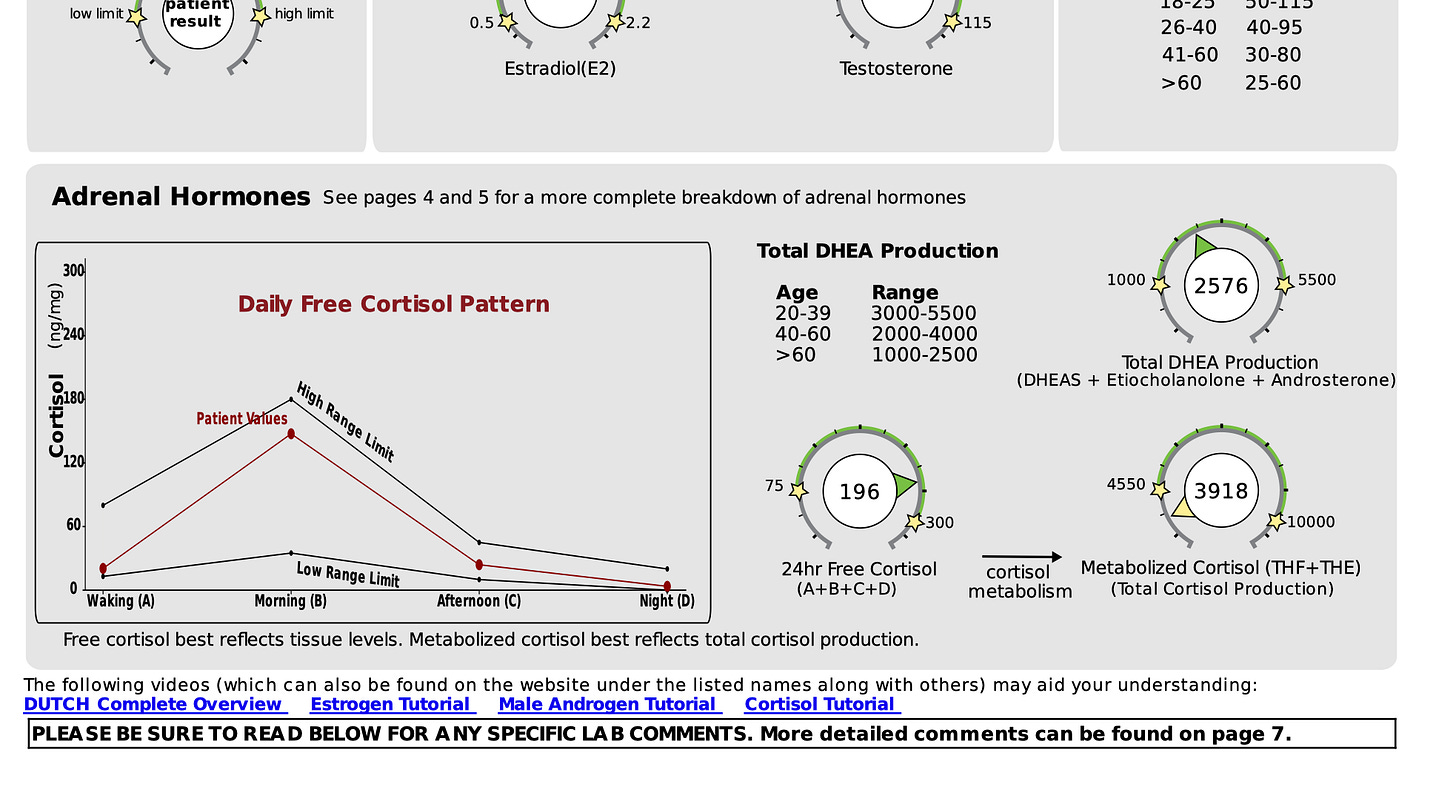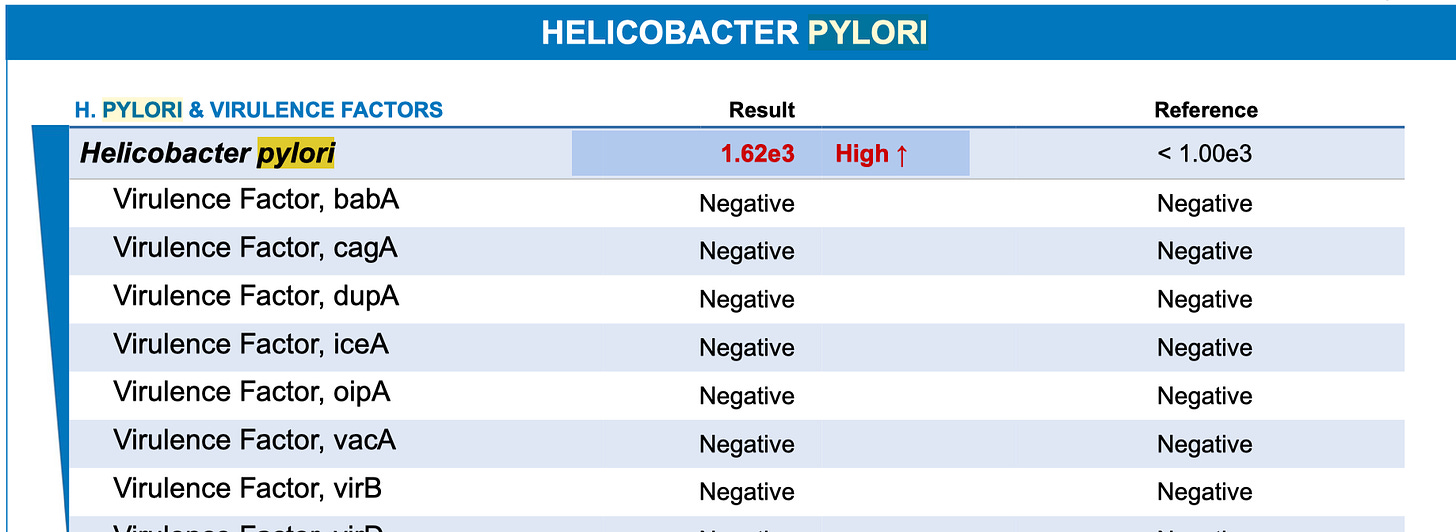My Unremarkable Brain: The Quest to Fix My Burnout, Or Whatever It Was
Taking a beginner's mind approach to the medical system
The other week I wrote about the Burnout Epidemic and the problem with using the word "burnout." Funny enough, just in the past week the Netherlands has reversed their classification of burnout and changed it to 'work-related psychic fatigue.' Their reasoning was the term burnout is too vague and makes it harder to diagnose...Not surprising! This week I share the next stage in my journey to figure out what was going on with my body...from visits to naturopaths, gastroenterologists, endocrinologists and neurologists.
1/ Beginner's mind
Zen Buddhist master Shunryu Suzuki says that "in the beginner's mind there are many possibilities, in the expert's there are few." When we've filled our minds with a lot of information, we can become overly certain and confident, overestimating our knowledge. Whereas when we know nothing or at least put aside our certainties, then we can open up to a range of ideas. This isn't to downplay the importance of acquired knowledge, wisdom and the 10,000 hour rule. It's simply a reminder that we have a tendency to hold on to that knowledge, and there are times when it's better to let it go.
This became painfully obvious as I started to talk to different doctors in Japan in hopes of figuring out a solution to my symptoms. At this point, I had what appeared to be a very strong allergic reaction to alcohol, coffee and chocolate — or anything with caffeine in it. Going to the sauna and exercise beyond a few minutes would trigger the same symptoms of anxiety and fatigue, albeit to a milder degree, but they would still go on for days. It all felt like riding a roller coaster in the dark.
The doctors all had their specialities. Stomach, hormones, bones, brains. You name it. They were all experts. But they seemed to be unable to reach for any hypothesis beyond the small frame of their expertise. They viewed the world through a hyper-focused lens. It's not that they weren't caring. They were all kind, gentle and friendly. But when they couldn't find anything wrong, they shrugged their shoulders and kindly pushed me along my way. I wasn't mad at them. It was the system.
I have zero medical training, so I was trying hard to understand what was going on. Every conversation was a new discovery, the proverbial 1,000 light bulb filaments that led a step closer to success. But one of the few skills I've got is my perseverance. So with nothing but good ol' grit and a beginner's mind, I continued my search for a cure.
2/ A happy surprise
After several weeks of zinc supplementation and daily cans of potent smoked oysters, my libido seemed to increase. Great, now I had an erection. But sex-drive wasn't a problem in the first place. A happy side-effect, I guess. Unfortunately, I still felt tense, anxious, and my mood continued to fluctuate. The doctor at the clinic who'd identified the zinc deficiency wasn't incorrect, but he had failed to identify the real problem.
I needed someone to spend more time taking a deeper-dive into my situation, so I booked a call with a naturopathic doctor. They're not certified medical doctors, but they get years of training in holistic medicine.
My naturopath sent me a complete hormone and adrenal test kit called the DUTCH Test, which you can order online. It has nothing to do with The Netherlands, and stands for "Dried Urine Test for Comprehensive Hormones." I peed on the sticks five times throughout the day and mailed in my kit. I also ordered a gut microbiome kit and had to poop in a small jar. As my excreta traveled across the country, I eagerly waited for the results in hope of finally getting clarity.
My results arrived two weeks later. This shit looked complicated so I had a call with the naturopath.
The call was 90 minutes long and pretty exhausting. He interpreted the graphs and charts for me with a little bit too much enthusiasm. His conclusion: there was nothing terribly wrong, but my cortisol pattern throughout the day looked questionable. It seemed I had a vitamin B6 deficiency.
Oh, and my microbiome test showed that I had some possible H-Pylori infection and light inflammation in my gut.
His suggestion was to add supplements to my stack to get my hormones and gut back on track. In fact, he gave me a list of about 10 supplements, including: Liquid Organic Vitamin B6, Lithium, Vitamin C, DHEA, L-Dopa, Calcium D, and an extensive probiotic regiment.
I was frustrated. I didn't want to take more supplements. I also wasn't thrilled with his answers because he still couldn't really give me a diagnosis, just a bunch of supplements to treat what he thought was a B6 deficiency. The assumption was that if I balanced out some of these hormone levels, that all would be solved. He told me to give it a few months of supplementation. This seemed like a long time to wait, so while I started to supplement I looked for other solutions.
3/ The gastroenterologist
In the meantime, I schedule another call with a different naturopath to get a second opinion on my test results. My call with the second doctor was uneventful. He told me that my test results were pretty normal. I could supplement with a few of the same supplements I'd already been recommended, but otherwise, he was silent.
I found a site where you could ask questions to a pool of doctors. I reached out to an endocrinologist (hormone specialist), hoping for a closer look at my hormones. She said something surprising: "It doesn't look like you have a hormonal issue, but it's probably H-Pylori." While my gut test showed me positive for H-Pylori, I thought this would clear up on its own. Neither of the two naturopaths told me I should worry. This doctor recommended I go see a stomach doctor, confirm my H-Pylori and then could get antibiotics.
Apparently Helicobacter Pylori can cause low-grade inflammation in your gut that causes all sorts of issues, including anxiety and mood fluctuation. And, the bacteria is more likely to thrive when cortisol is heightened and in periods of increased stress. My months of stress from the startup, while no longer stressing me out, could have created the perfect environment for the bacteria to grow. It seemed like the puzzle pieces were falling into place, once again.
The gastroenterologist was happy to schedule an endoscopy the next day. "Do you want to include a colonoscopy with that, too?" He seemed giddy. What was this, McDonalds? "Do I need it?" "No," he responded, "But it's a good opportunity!" I declined the colonoscopy for now, at least until we had the results back for the endoscopy.
They coated my throat with cherry-flavored anesthetic and shoved an uncomfortably long black tube through my nose.
I watched as the tube pushed through my guts on the screen in front of me. It was surreal. My stomach made rumbling noises at the foreign intruder. It wasn't painful, just very uncomfortable. The procedure took about 10 minutes. They took a sample from my stomach and sent it off to the lab to test for H-Pylori, along with a few tubes of blood.
Long story short, there was nothing wrong in my stomach and I didn't have H-pylori. Probably some botched tests results from an infected lab that led to a false positive earlier. Damn. I really thought this was going to be it, so I felt quite disappointed. I crossed that one off the list and scheduled appointments to see more doctors.
4/ The unremarkable brain
The G.P. Tokyo University Hospital ran a series of extensive blood tests. I couldn't look at all of the tubes of blood as I would have puked, but I think they took ten tubes of blood. They checked for any sort of inflammation, hormone issues, cancers and you name it. The whole gauntlet. But, same story. Three weeks later my tests results came back and I looked perfectly healthy. "Everything is great, Misha-san!"
The G.P. connected me to the neurologist and endocrinologist for extra check ups, just in case. The neurologist booked me in for an MRI to make sure I didn't have any brain tumors or anything funky going on. Again, part of me craved for the simplest explanation. I secretly wished that I had a brain tumor in the early stages that could easily be treated with medicine or light surgery.
I was in the MRI machine for 20 minutes and it felt like it went by in a flash. I laid totally still. My meditation practice had come in handy. The two nurses were kind enough to take a picture.
My test results came back the next day…
Keep reading with a 7-day free trial
Subscribe to Misha Yurchenko's Newsletter to keep reading this post and get 7 days of free access to the full post archives.










